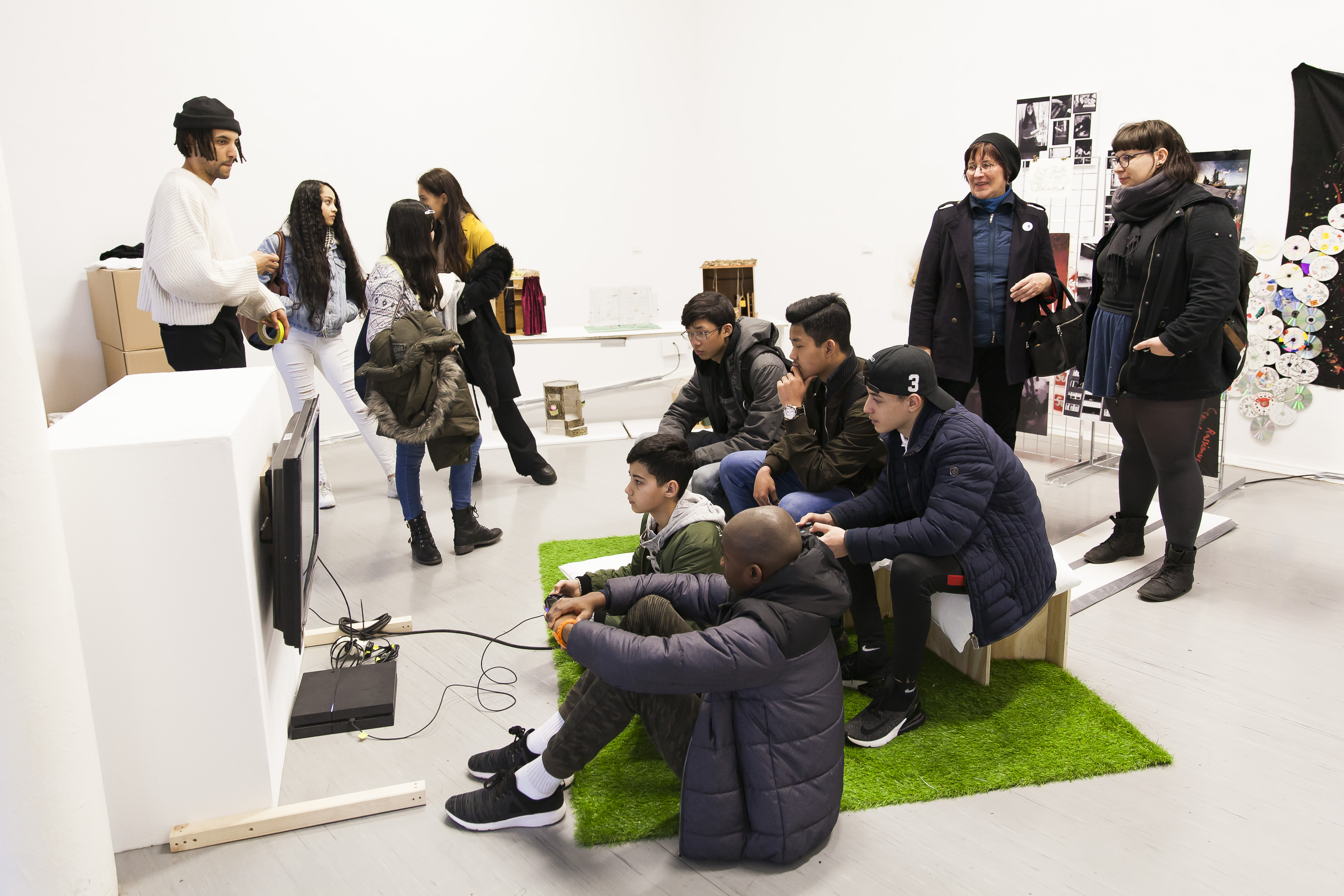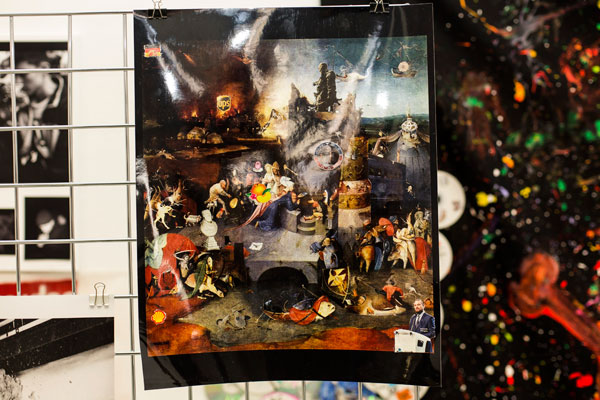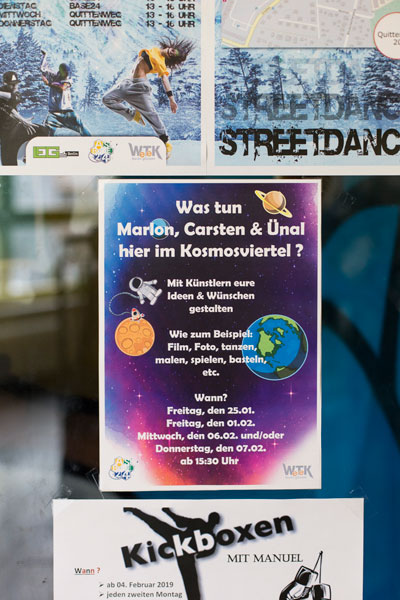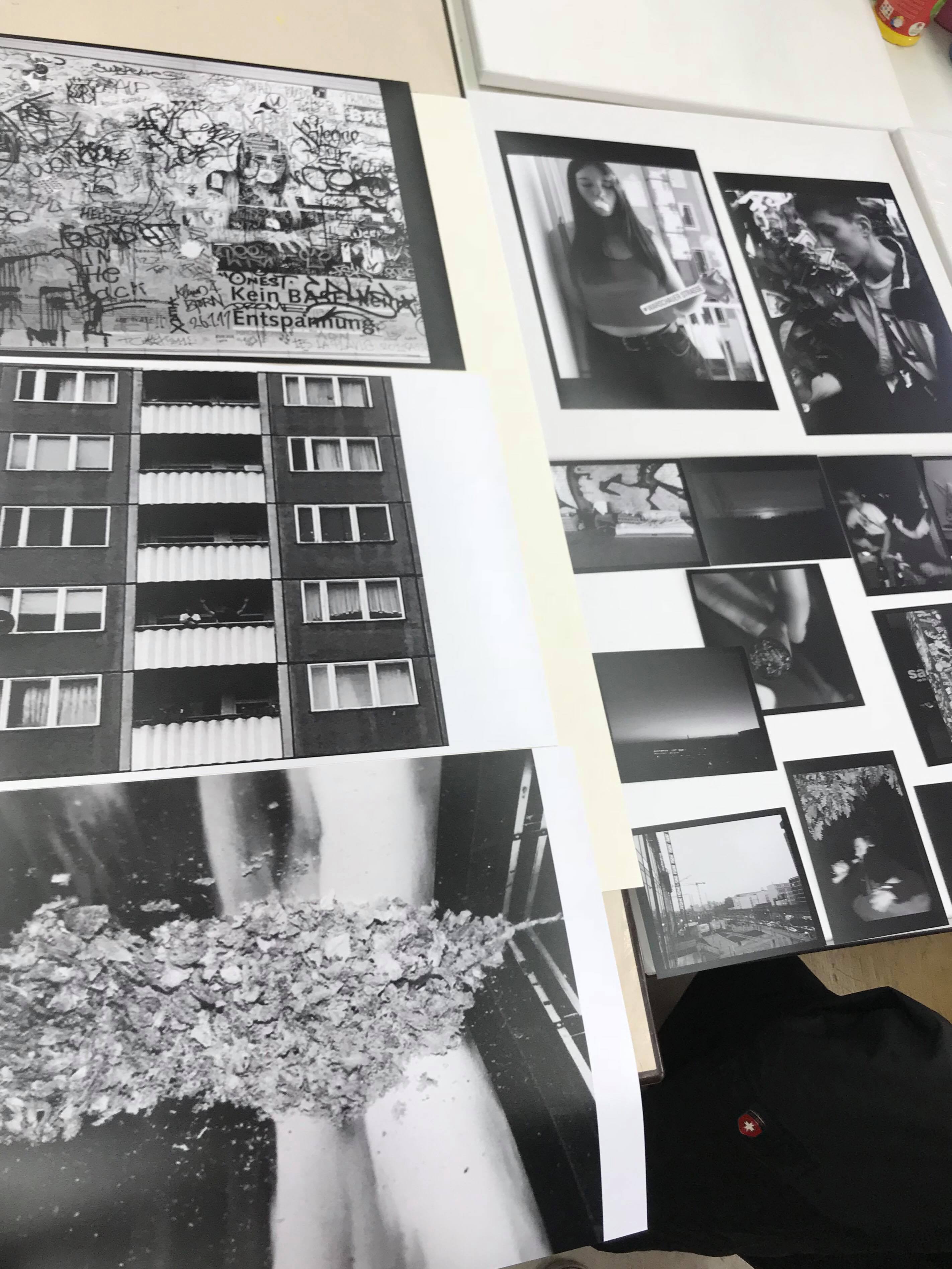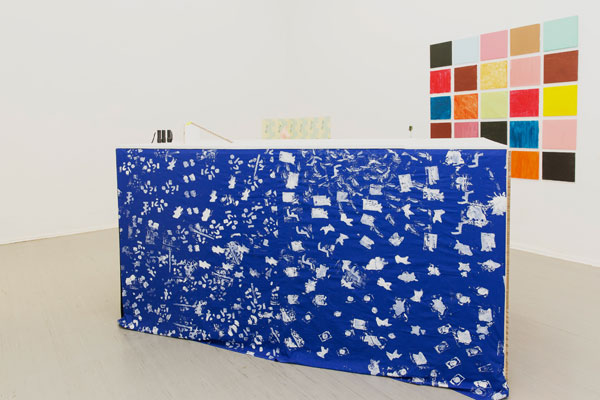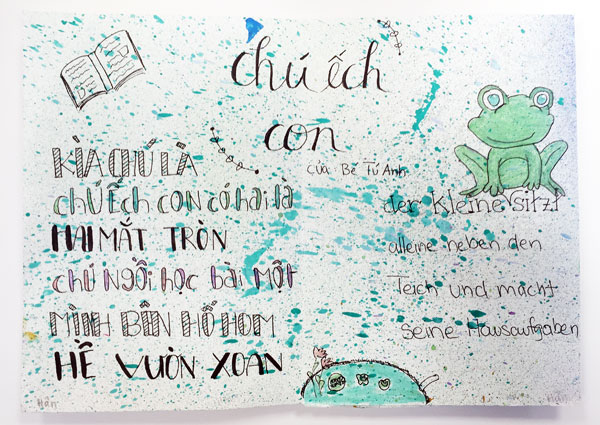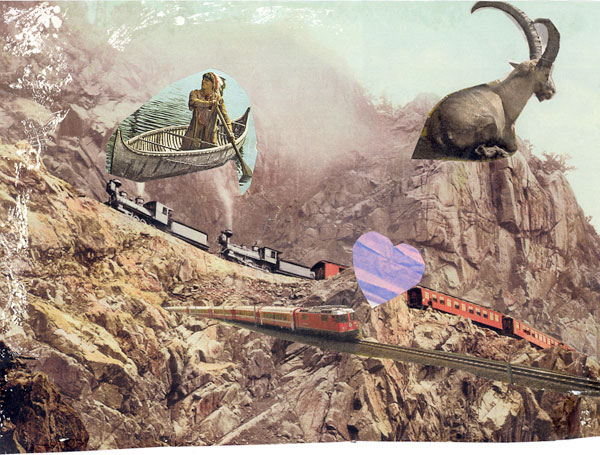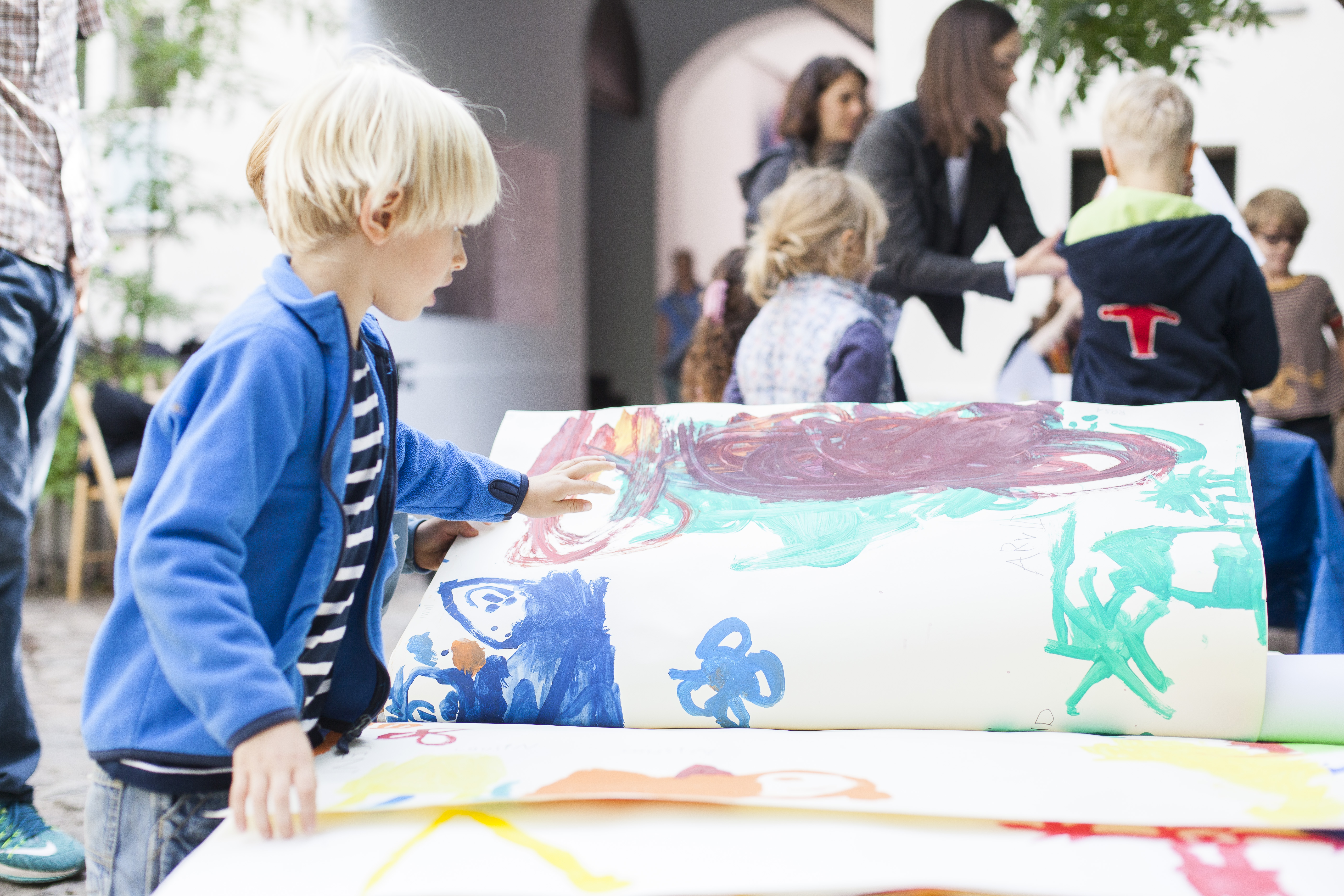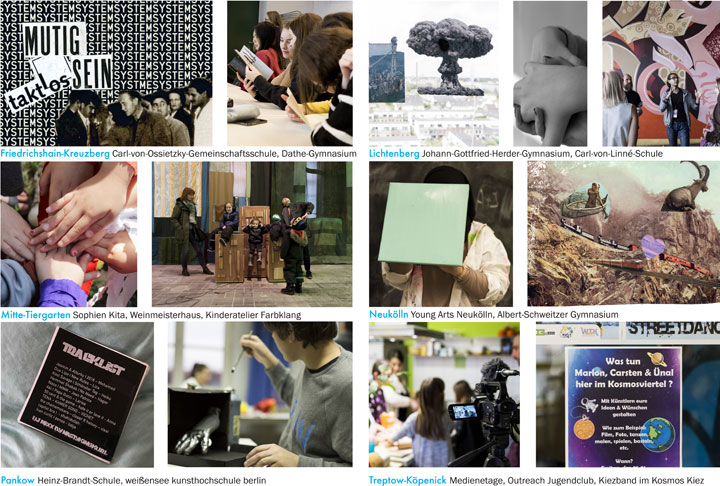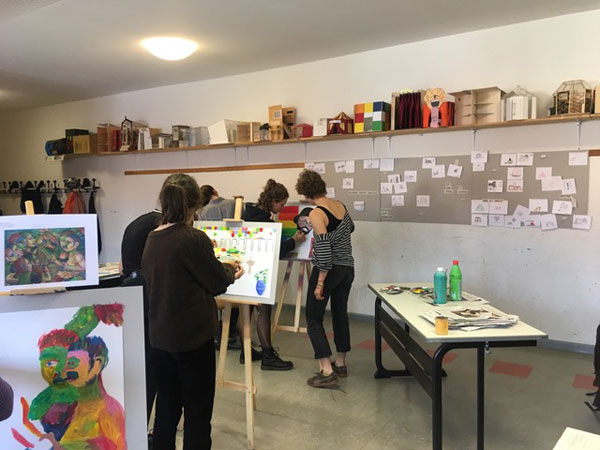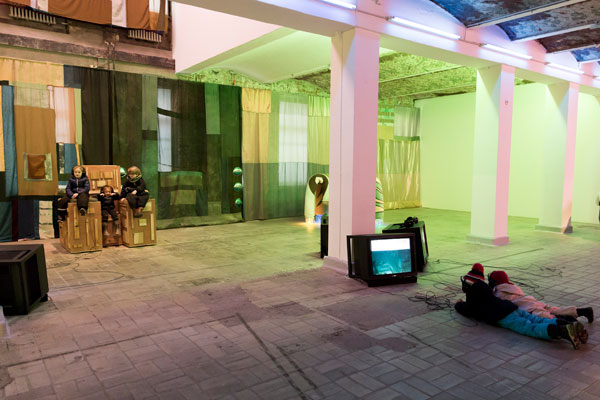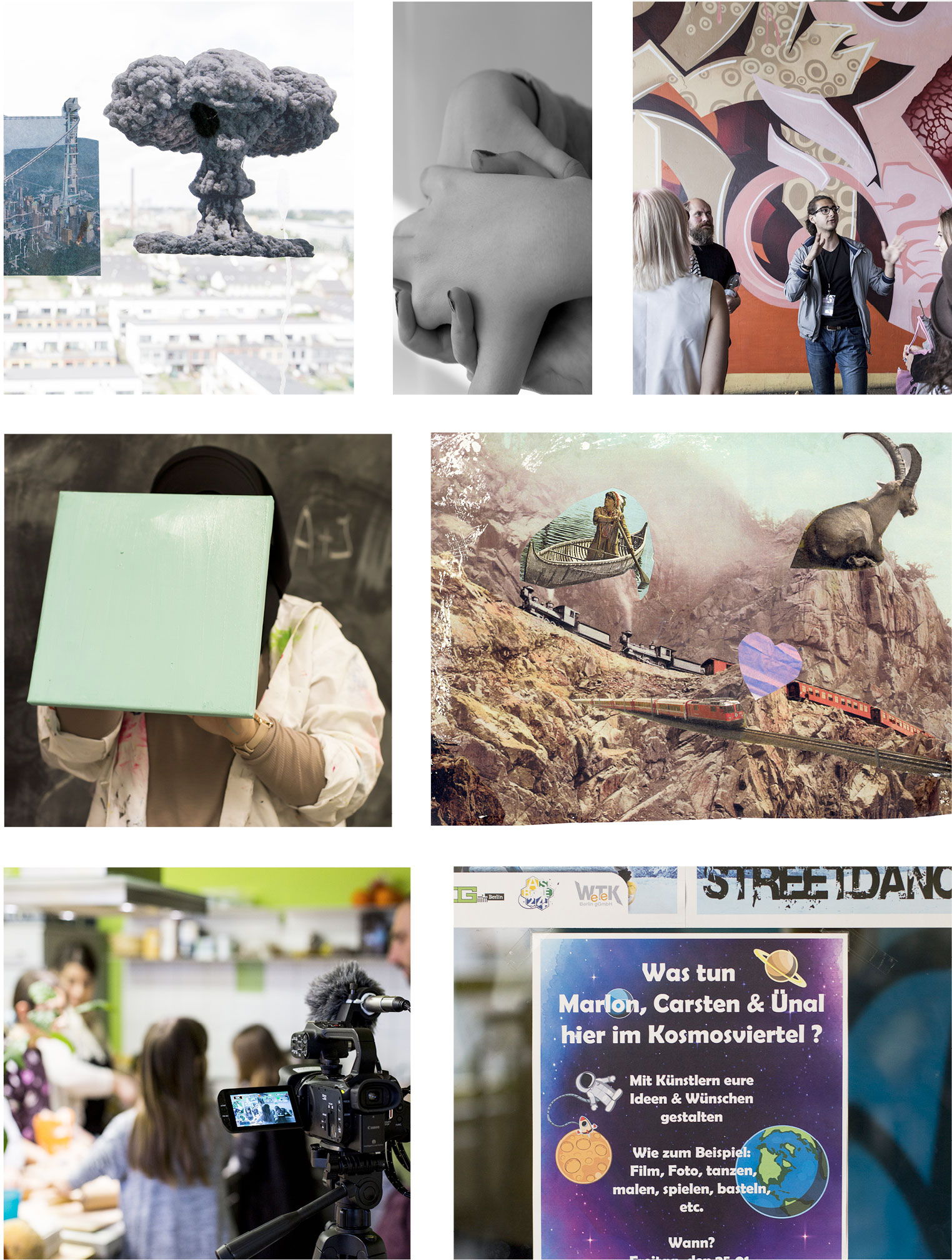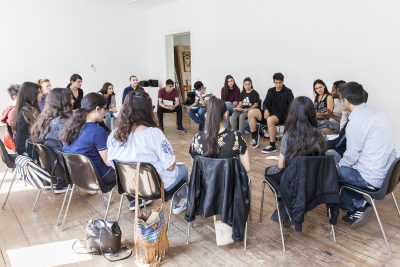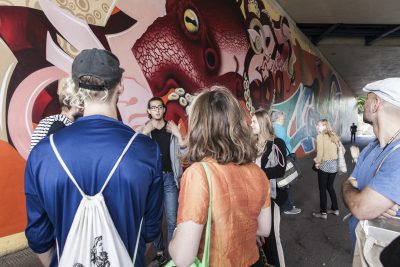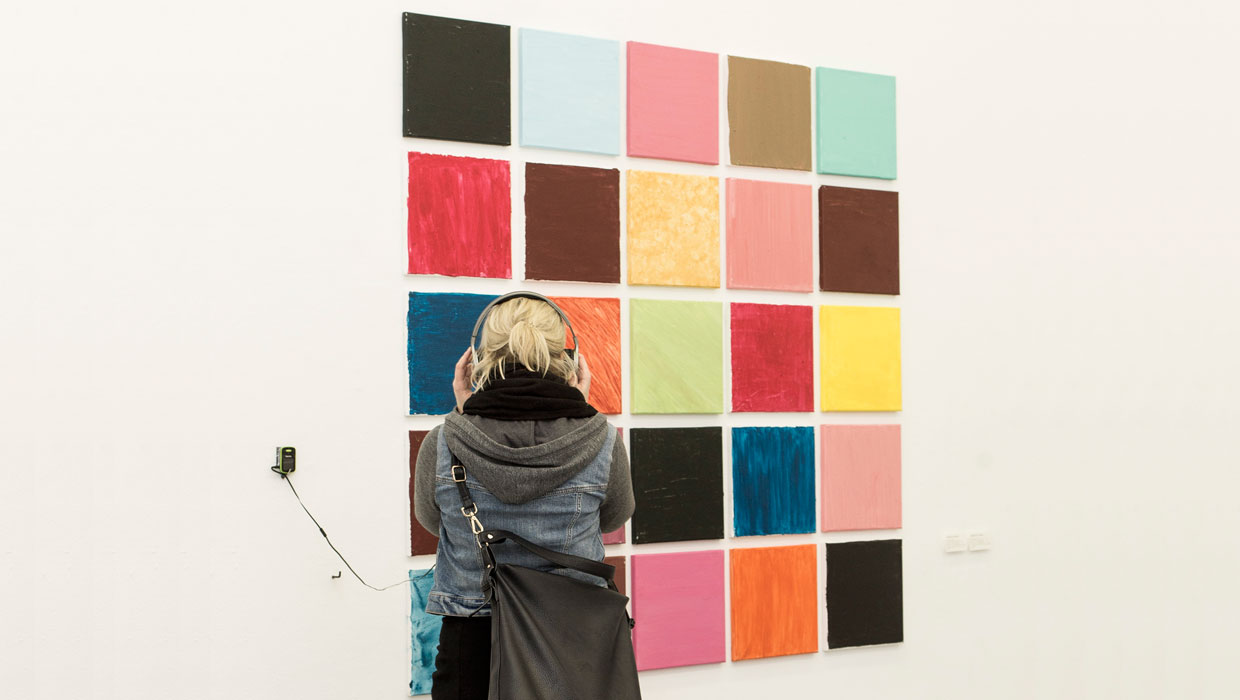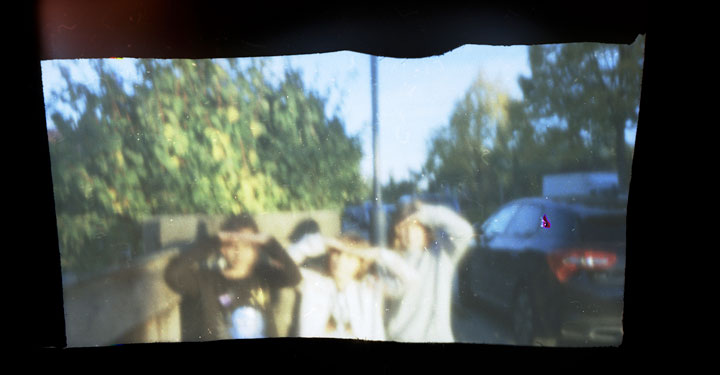Documentation ready – download here as epub
Every two years in summer, crowds flock to the Mitte district of Berlin: the Berlin Biennale for contemporary art opens its doors. How does the format of the Biennale work – and what possibilities does it offer us? Where and in what way do different social groups have a place? What does curating mean, what does mediating mean? Who feels attracted to contemporary art – and why?
In the project Berlin Biennale: as far as I’m concerned, the focus is on young people who curate their own exhibition. In artistic processes moderated by artists, a Berlin-wide youth biennial is to be conceived in a participatory manner. It is primarily about artistic freedom, curating and the children and young people involved’s own expression. In the joint project work, it turned out that some groups could be better supported in their mobility and access through the existing structures than others. For us, this raised questions about cultural canons and inequalities in the education system. Who is in the center, who is on the periphery? Whose interpretation prevails? What about artistic networks in the different districts of Berlin? And so, in the Berlin Biennale art project, everyone involved is inevitably asked to deal with social phenomena – such as divisions and parallel living environments as well as unfair distribution of access and resources. “Wandering formats” emerged, which, thanks to their mobility, can fundamentally make it possible to pass on and translate content and experiences – not just on these issues – to different constellations in the districts.
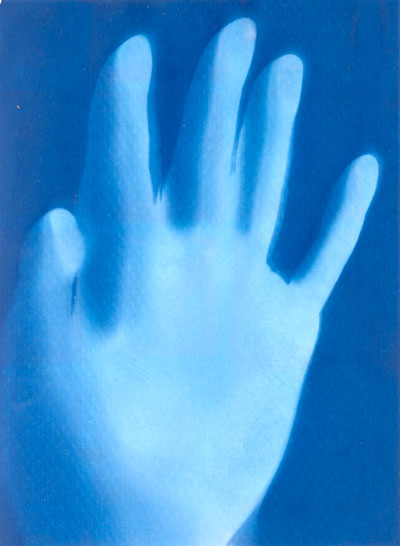
In the first stage of the art project, the Biennale format was artistically examined by over 120 children and young people from all over Berlin (Friedrichshain-Kreuzberg, Lichtenberg, Mitte, Neukölln, Pankow, Treptow-Köpenick) within the framework of six thematically related laboratories. Artists from the network of The Hub e. V. and team members of the Berlin Biennale moderated the processes of the respective laboratories.
In Laboratory 1, the first of the six laboratories that structured the Berlin Biennale project in terms of content, we focused on the 10th Berlin Biennale as a system. The focus was on the Biennale as a socio-economic mechanism and on fields of work in its context. Interviews were conducted here and many interactive tours and workshops took place in the exhibition rooms.
In Laboratory 2, we were at the center as the subjects involved. We therefore used biographical approaches to research aesthetic practices in relation to living environments, as shown, for example, by the project Fanzines – Song of Remembrance, but also the cultural tours through Lichtenberg.
In Laboratory 3, the focus was on their own artistic production, and a wide variety of work formats were created, from power objects (Pankow district) to a neighborhood shop (Neukölln district) to interactive games (in the exhibition Don’t be an ego player!).
In Laboratory 4, a team of young people curated the exhibition Don’t be an ego player! in the project space – Kunstquartier Bethanien. In this context, young people from Neukölln and Kreuzberg conducted numerous interactive tours with visitors from different generations.
In Laboratory 5, the experiences were evaluated together, in order to then develop the concept for a youth biennial 2020 in Laboratory 6 with a participatory, inter-district working group of young people.
Photography Victoria Tomaschko
Schools, day-care centers and youth facilities:
- Albert Schweitzer School Berlin (Neukölln)
- BASE 24: Children’s club (Treptow-Köpenick)
- Berlin Metropolitan School (centre)
- Carl von Ossietzky Community School (Friedrichshain-Kreuzberg)
- Carl-von-Linné school-special needs school with a special educational focus on motor and physical development (Lichtenberg)
- Dathe High School (Friedrichshain-Kreuzberg)
- Evangelical day care center Sophien (middle)
- Johann Gottfried Herder High School (Lichtenberg)
- Heinz Brandt School Berlin (Pankow)
- Day care center Kleine Auguststraße (middle)
- Upper School Body Care Center (Charlottenburg-Wilmersdorf)
- Kiez band in Kosmoskiez – Wetek (Treptow-Köpenick)
- Media floor Treptow – Wetek (Treptow-Köpenick)
- Tube youth club (Lichtenberg)
